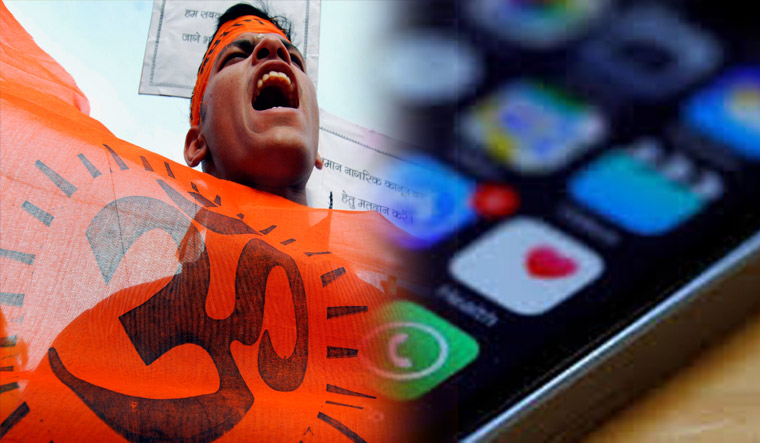Bigotry in modern India is endangering the 'fictional' equality in the country. Social media outbursts, fake news and controversies are spread in the blink of an eye nowadays. The contradiction of the chest-thumping “modern” society is that on one hand, it is highlighting efforts to minimise the ill-effects of gender, caste and religious discriminations on various social media platforms, while on the other, the same platforms are used to add fuel to the fire in sensitive issues of discrimination.
On Monday, a woman from Lucknow apparently refused to interact with the social media representative of telecom major Airtel on the basis of his religion.
Pooja Singh, who claims herself to be a proud Hindu, tweeted, “Dear Shohaib, as you’re a Muslim and I have no faith in your working ethics because Kuran may have different version for customer service, thus requesting you to assign a Hindu representative for my request. Thanks.”
Dear Shohaib, as you’re a Muslim and I have no faith in your working ethics because Kuran may have different version for customer service, thus requesting you to assign a Hindu representative for my request. Thanks
— Pooja Singh 🇮🇳 (@pooja303singh) June 18, 2018
In a bizarre decision on its part, Airtel went on obliging the irrational demand of the woman! It was only after the Twitter outburst, led by former Jammu and Kashmir chief minister Omar Abdullah, that the company put out a post saying they do not discriminate among different religions and castes.
Dear @Airtel_Presence this conversation is genuine (I’ve seen the timeline myself). I refuse to pay another penny to a company that condones such blatant bigotry. I’m beginning the process of porting my number to another service provider & canceling my DTH & Broadband. pic.twitter.com/BZxJOaEsN6
— Omar Abdullah (@OmarAbdullah) June 18, 2018
The death of a society is woven with the threads of discrimination. The hatred being built among the communities can lead to incurable disharmony in the country.
India is a secular state where all religions co-exist peacefully. This may hold true theoretically, but the reality is far from the ideals of the Constitution.
On April 11 this year, the Pew Research Centre, which had conducted a survey on 198 countries, ranked India as the fourth worst in the world for religious intolerance. Kudos to the secular state! Tensions between the religious groups, especially Hindus and Muslims, have long divided India; the rifts have never been reduced, but rather intensified.
The Lucknow woman episode is only the latest example of the online racism unleashed by the “glorious” Hindutva brigade in the country.
In April this year, Abhishekh Mishra, who claims to be linked with the Vishwa Hindu Parishad, reportedly cancelled an Ola cab since the driver was a Muslim. Mishra tweeted that he cancelled the cab as he was not willing to give money to "jihadi people".
His tweet triggered a huge controversy and debate on social media, but what was more shocking was that many people strongly came out to defend him, describing his move as “freedom of expression”.
India has been witnessing religious dogmatism and communalism for a long time. Ever since independence, the country has been the victim of communal riots and violence which put its secular fabric under severe threat.
Of late, the situation has reached an alarming stage, with the parallel co-existence of social media giving ample space for bigots and fanatics to exert considerable influence on the society. Being communally adherent is a cherished statement today.
(DISCLAIMER: The views expressed in this article are solely those of the author and do not necessarily represent the views of the publication.)


